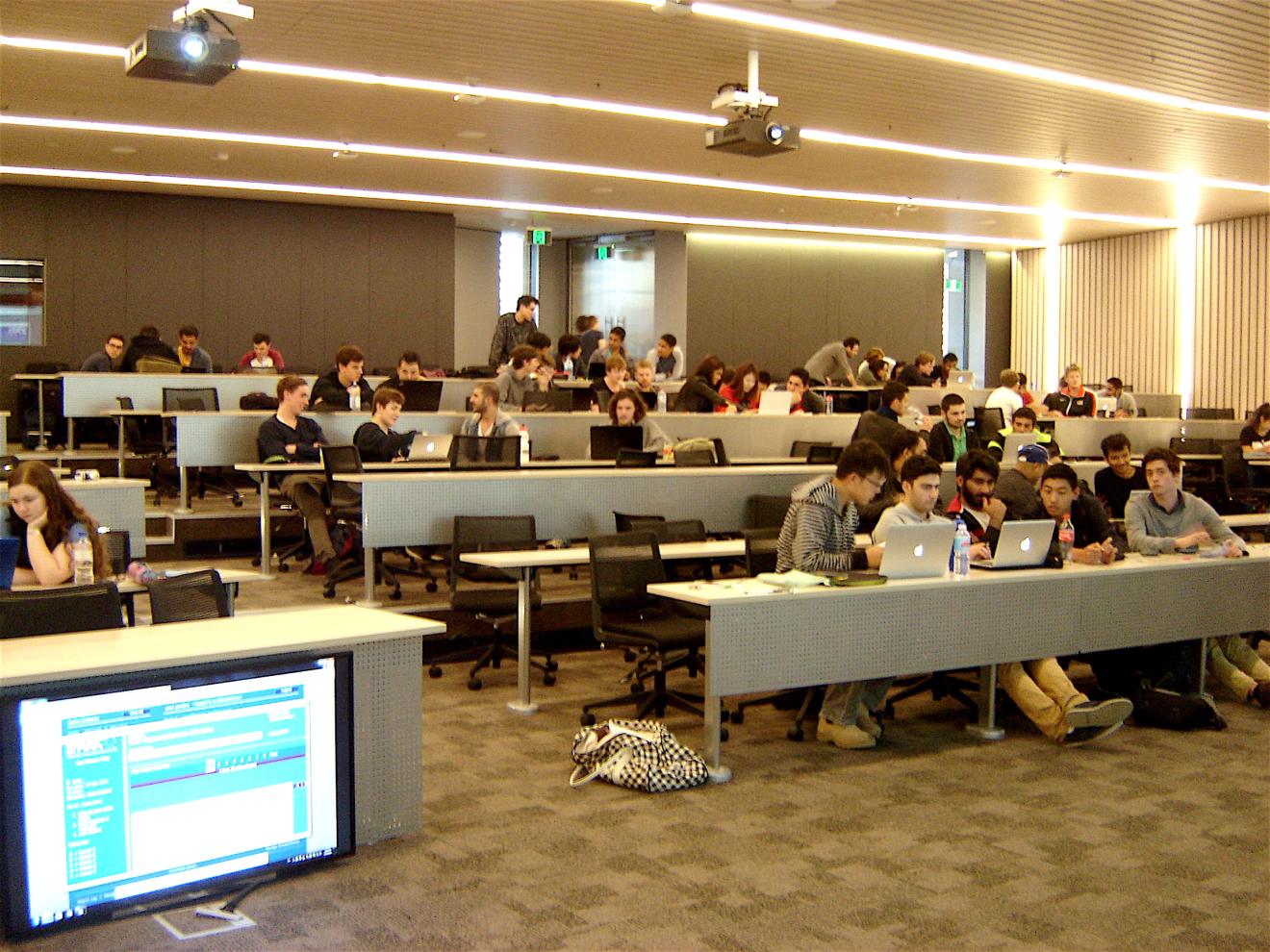
Keywords: first year subject, collaboration, group work.
|
Lecturer: Dr Anne Gardner Faculty: Faculty of Engineering and IT Project: Large Collaborative Classes Keywords: first year subject, group work, collaboration. Number of students enrolled (Autumn): 150 |
Engineering Mechanics is a first year subject designed to enable undergraduate Engineering students to become familiar with foundational concepts relating to analysis and design of engineered structures. These concepts form the basis for future knowledge-building in many areas of civil engineering, such as fluid mechanics, hydraulics and road design. The subject provides a fundamental starting point for successful completion of the engineering program. Small group work in lectures teaches students how to work collaboratively.
Watch a video of the lecturer speaking about the subject, and a video of the students speaking on their experiences of the subject. What's happening?Teaching staff request that students engage with pre-classroom materials prior to attending lectures and tutorials. Lectures are used as opportunities to engage in collaborative problem solving activities. There are two main types of collaborative tasks held in lectures. In both activities students choose peers to work with in small groups (~3 or 4).
In one type of activity all students in the class might work on the same problem; there is then a class discussion about the different types of ways of reaching a solution.
In the second type of group activity, all students are working with a high-level problem. They all have the same overall story, but different groups are given different data to work with. The class then discusses the different types of possibilities when having different data for a high-level problem.
In tutorial sessions, students consolidate the knowledge and skills they have been working on the lectures. They work with problems at a medium level of difficulty, but with close support from tutors. Why do we think it's successful?The overall learning design envisages students’ engagement in discussions as a way of stimulating critical thinking. This is realised through a number of strategies, only some of which happen through different group discussions in the large collaborative theatre. Active learning strategies and learning spaceThe large lecture classes happen in the collaborative theatre (401), and the furniture and flexible arrangements facilitate collaborative group work. Students can easily turn around and be re-arranged in groups. Adaptable learning design and students as co-participantsThere is an atmosphere of openness where students are treated as co-constructors of their own learning. The lecturet shares with students the reasoning behind a learning strategy she is using in a given lesson, explaining how that specific strategy helps with their learning. For instance, each week students are responding to quizzes before coming to lectures. The lecturer then uses SPARK to check students’ understandings of last week’s topic, but also as a way to identify areas that students might not have grasped so well. The class results are openly shared with students, as the lecturer explains the need to further explore a certain topic. Beyond the classroom: a community of learners & fostering engineering identityStudents are invited to participate in a Facebook group, where they post questions, problems, and ideas about what is discussed in the course. Interestingly, some students from previous cohorts remain as ongoing members, and share invaluable knowledge and experiences with current students. An interesting idea is that students will learn to see themselves as junior engineers. They will learn how to look at built structures with an engineering eye, thinking about the forces in action within that structure.
Photo credit: Anne Gardner |

